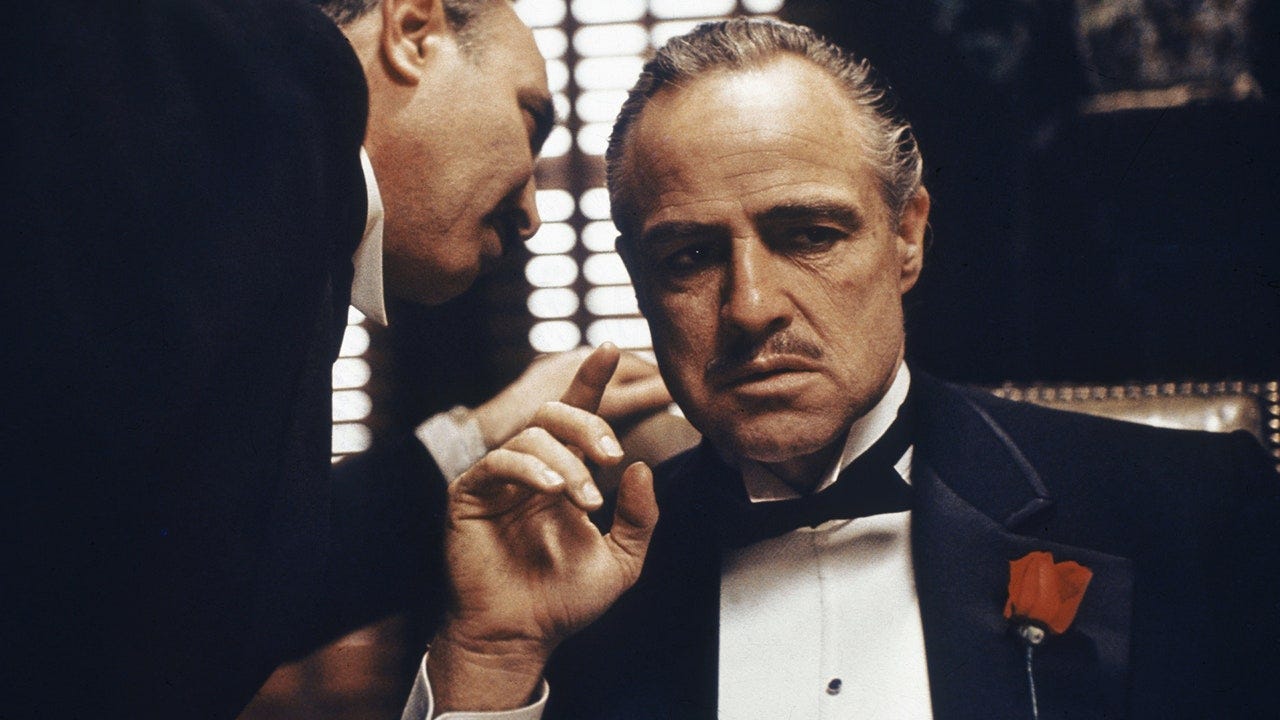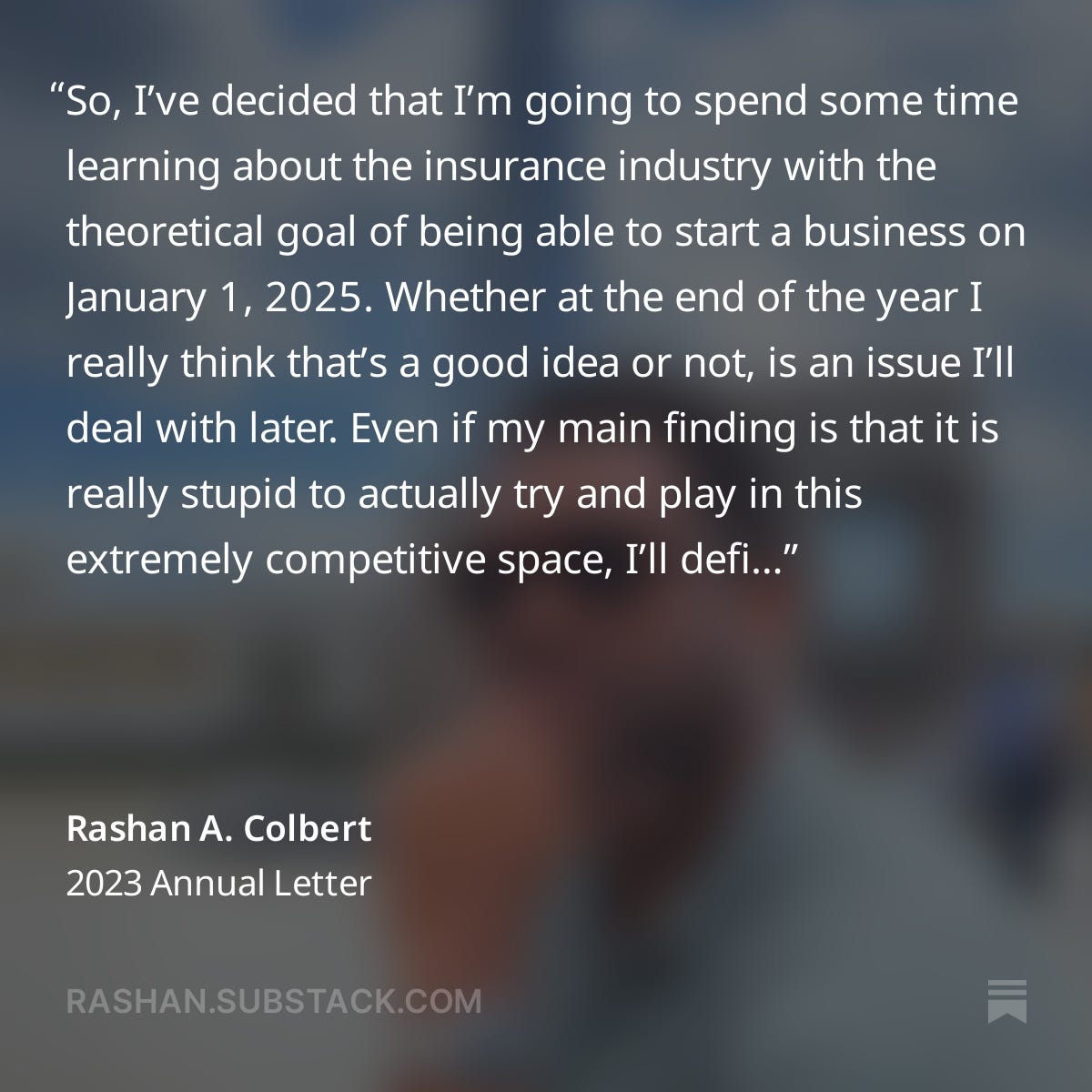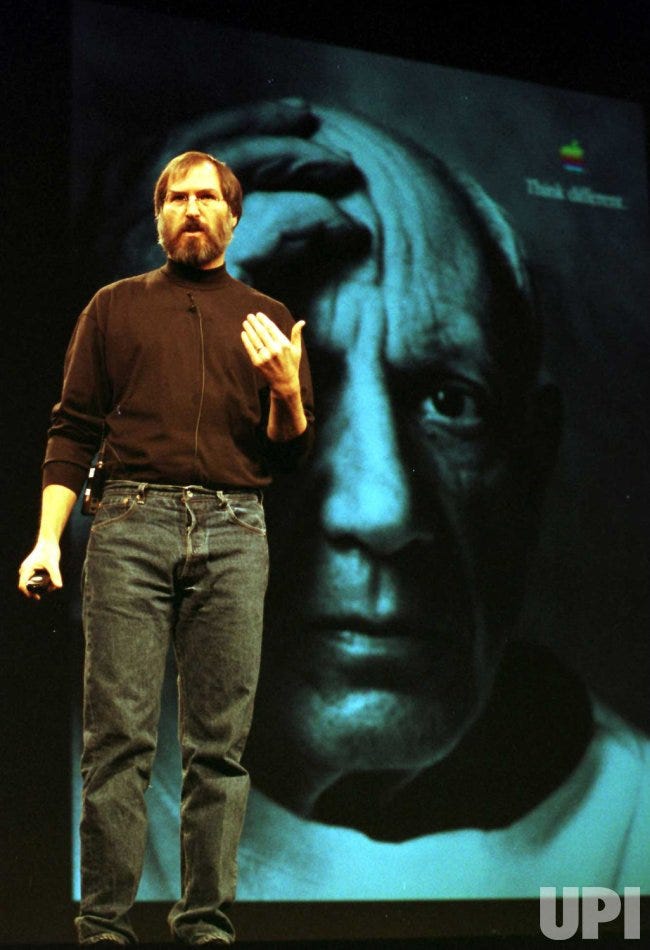You are Choosing to Read This Essay
We live our lives by choice. Every day is filled with options. When you make the same choice over and over again it becomes a habit. When you have collections of habits that all fit together well, you develop something like a system, or even a theory, of living. You can say to yourself ‘I am an efficient person who aims to be productive.’ If you live a “productive” life, filled with “productivity hacks” and other assistive habits, you might begin to think that’s the “best” way to live, or even become so ignorant to other choices that you forget there are different ways to live until you stop to ask someone.
At the end of 2023, in my annual letter here on Getting a Grip, I talked about my recent fascination with the discipline and practice of insurance, and its attendant industry. In the letter I shared a sort of syllabus I developed to teach myself the things I wanted to know in a systematic format, and committed to sharing my findings with you all.
As I’ve gone about teaching myself these things, I’ve also started pondering just how I’m going to share my research. I asked two of my closest advisors just what method I should use to share my findings. I asked their opinions on the best option between:
sharing everything here, in monthly posts like standard newsletters
creating a new newsletter that some can subscribe to, and that I can easily refer to, so as not to clog this feed with niche content;
devising some totally different method.
I received a response recommending that I seriously consider not sharing my findings at all, particularly if I was serious about embarking upon a corporate venture in the industry.
This caught me off guard. I actually hadn’t even thought about the possibility of not publicly sharing my work. Frankly, I am committed to making this a public project, so that’s what I’m going to do; but that in no way invalidates the suggestion that perhaps I shouldn’t. I’ve been thinking about this and questioning my own assumptions since.
So, today I’m going to dive in and think critically about the merits of building in public:
Point and Counterpoint
Every real decision has a meaningful option the decision maker is choosing to forego. When Don Corleone makes you ‘an offer you can’t refuse,’ it’s not really an offer, it’s a command. In most other circumstances there are at least two reasonable sets of facts. One is often more closely aligned with your habits and beliefs, which makes some decisions feel like ‘no brainers.’
I believe that being aware of the decisions I’m making, and why I’m making them, is a good practice for two reasons. One: I think I’m slightly more likely to make the right decision if I’m thoughtful about it. Two: it’s much more helpful from, a learning perspective, if I can look back to the variables that led me one way or the other in a particular circumstance.
So, along with articulating just why one might want to build in public, I’m going to also seriously consider why choosing not to build in public might be a better decision.
Point One(a): Have my assumptions questioned.
As in the example above, I find real value in the process of having my assumptions questioned. It’s much simpler to rely on well ingrained practices and beliefs, but it's crucial to embrace challenges that force us to reconsider our preconceptions. Even when new information, additional context, or a different perspective doesn’t result in a different outcome, being forced to think a level deeper is beneficial and can lead to surprising results (a microscopic example: the essay you’re reading now is a direct result of having my own assumptions questioned, which came from sharing my thinking with others).
Point One(b): Open my work up to unexpected eyeballs and opportunities.
I write Getting A Grip primarily for myself, but I’m fully aware that some people see it, including dozens of people who I know personally, or at least professionally. But every once in a while I find out that someone I didn’t know was looking, or who I didn’t even know existed, has read one of my essays and found value in it. This publication hasn’t led to anything concrete like a new job, but it’s not…NOT the reason I’ve been able to thrive in my field. A couple of my essays on crypto have found a meaningful life of their own.
Counterpoint: People could judge my work negatively.
External judgment is an inherent reality of sharing one's work publicly. In the quest for my assumptions to be questioned, I must anticipate that people will judge my work, sometimes negatively. Not everyone will appreciate or understand the choices I make. However, the acknowledgment that judgment is inevitable fosters resilience and a commitment to authenticity. Rather than fearing judgment, I can view it as an opportunity for constructive feedback and growth. Embracing the possibility of judgment becomes a catalyst for refining my work and staying true to my purpose, regardless of external opinions.
Point Two: I could give a potential gift to others.
Choosing to build in public is offering a potential gift to others. Sharing my insights, experiences, and knowledge serves as a tiny contribution to the collective growth of our community. I think blogging is the very best of what the internet has to offer (aside from obvious life or precious resource saving innovations), and I feel obligated to contribute.
I’ve gained so much value from other writers online who share their work and opinions, especially on niche subjects, that I could never repay. A few of those writers and posts that have been particularly meaningful (that I think you might appreciate as well):
Epsilon Theory: The Three Body Problem
Arthur Hayes: A Samurai, a Knight, and a Yankee
Wait But Why: Elon Musk Blog Post Series
Stratechery: Aggregation Theory
Counterpoint: The World is Governed by Secrets:
Getting a Grip primarily exists as a tool to help me understand how the things I care about in the world actually work, from technology, to politics, to business, and even my own mind. One thing that I basically believe about the world is that it is that it is basically ruled by closely guarded secrets. These secrets can be learned from membership to exclusive clubs (not like ‘the Illuminati - but other truly inaccessible echelons), through hard work and toil, by a generous gift, or sometimes through chance. Peter Thiel (who I have major issues with, generally, but also wrote one of the very best books on entrepreneurship), in his book Zero to One, says this about secrets:
“So who do you tell? Whoever you need to, and no more. In practice, there’s always a golden mean between telling nobody and telling everybody—and that’s a company. The best entrepreneurs know this: every great business is built around a secret that’s hidden from the outside. A great company is a conspiracy to change the world; when you share your secret, the recipient becomes a fellow conspirator.”
As I commit to sharing my findings, I have to navigate the delicate balance of revealing information that adds value without compromising sensitive elements.
Point Three: Create the pressure to ship.
The decision to build in public places a self-imposed pressure on me to ship—to turn my ideas into tangible products. Much like when I mapped out how to organize my research findings, as part of my annual letter, that I knew people would see, the theoretical public gaze acts as a motivator, prompting the move from ideation to execution.
Counterpoint: Societal norms will change in the future:
Putting more thoughts out into the world can seriously backfire. The landscape of norms is dynamic and is always subject to change. What may be widely accepted today could become taboo or embarrassing tomorrow. As an ambitious person who aspires to positions that could be subject to judgement by the court of public opinion, it would be reasonable to take the approach that ‘anything you say can and will be used against you,’ and thus it’s better to say as close to nothing in public as possible.
To me, this means that a continuous assessment of my public contributions is critical. Because the Internet is written in ink, and anything can be recalled in the future, it’s critical to ensure that what I say is authentically aligned with my values. Facts may be right or wrong, but I should be able to defend my intentions valiantly.
Point Four: No one else really cares anyway.
The reality is: almost no one will see what I write. A limited number of individuals, mostly folks who I have a pre-existing relationship with, or who for some reason become legitimately interested in me or my ideas, are likely to read my product. While, as I said above, others might see my work on the occasions I do a really good job, but statistically, that number is relatively small.
Counterpoint: I could fail.
And the stone cold reality is that: By setting a goal; I’ve created the opportunity to fail to achieve it. Failing in public is embarrassing, but even if no one else sees, failing yourself is at least as bad.
I’ve identified a small range of potential outcomes for my current research project:
The real output I’ve committed to is doing the work of learning about this space, and making it public. If my energy and perseverance fade…then I will fail at achieving my goal. If that occurs; I’ll analyze that here and own up to it.
A Final Note: Ideas are easy. Execution is hard.
From a business standpoint, there are so many great ideas floating around out there. Spend one day really reading the twitter archives of a current startup founder or significant venture investor and you’ll have a small pile of things that could be turned into meaningful enterprises.
Building anything of value is incredibly hard and people are borrowing, or stealing, other peoples ideas all the time. This is different from plagiarism, of course (speaking of which, I implore you to skim some of Bill Ackman’s recent essays Tweets Xs(?) on plagiarism for some light reading over the weekend), or patent violation.
All the best ideas in the world are built upon a foundation laid, and shared, by others. I’d consider myself lucky to add some bricks to that foundation.
“Good artists copy; great artists steal.”
- Picasso
- Steve Jobs
- Rashan
(PS: Thanks to my friends for making me think harder.)






